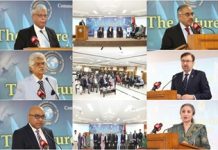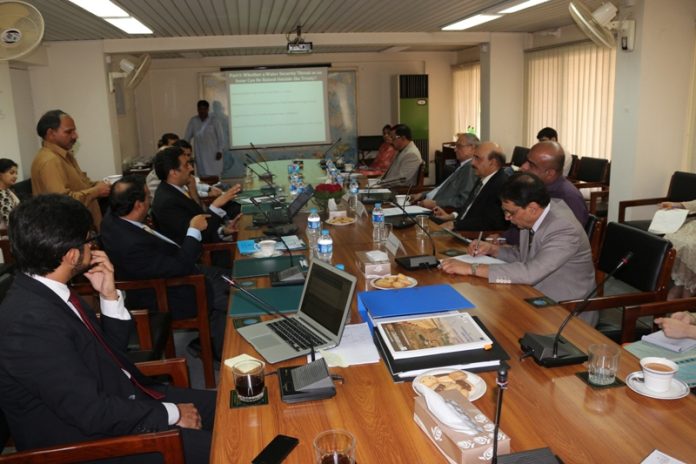Keeping in view the importance of the water issue, the Institute of Strategic Studies, Islamabad (ISSI) organised an In-House meeting where former Law Minister and currently distinguished ISSI Fellow Mr. Ahmer Bilal Soofi extensively spoke about the “Legal Aspects of Water Issues between Pakistan and India”. Besides the researchers at ISSI, the meeting was attended by scholars including Dr. Ashfaq Ahmad Sheikh, Director General, Pakistan Council of Research in Water Resources (PCRWR), Amb (R) Ali Sarwar Naqvi, Executive Director, Centre for International Strategic Studies (CISS) and Rao Irshad Ali Khan, Member, Indus River Authority (IRSA).
Mr. Ahmer Bilal Soofi apprised the audience regarding his study on the legal aspects of Indus Water Treaty. The study raises several questions such as whether a water security threat as an issue can be raised outside the treaty and whether India has an obligation under general principles of International Law to allow minimum flow in Eastern Rivers for conservation and river ecology. Besides, special focus is also being paid on the state practices of India (India is a lower riparian country in its water dispute with China whereas an upper riparian country in its water dispute with Pakistan and Bangladesh) to check if there is any contradiction or not. Mr.Soofi also apprised the audience regarding the material that is being used for this study which included works by eminent scholars like John Brisco, Ramaswamy R Iyer and Undala Z. Alam.
Mr. Soofi pointed out that Indus Water Treaty was never a political solution to a problem. In fact it was more about managing water resources. The fact that the water dispute involved the disputed territory of Jammu and Kashmir made things even more difficult for Pakistan.
While discussing the question of renegotiating the Treaty, Mr. Soofi did not agree and argued that Indus Water Treaty is an excellent legal document. With regard to the water dispute between China and India and its implications for Pakistan, Mr. Soofi said that the current status actually favours Pakistan as India is a lower riparian country.
Mr. Soofi highlighted the fact that Pakistan has always dealt this issue from technical and engineering point of view which was never backed up by legal arguments. Engineers and lawyers need to sit together to interpret the treaty in a holistic manner. He suggested that since this is a serious issue and Pakistan will have to deal with it for many years to come, it would be advisable if young scholars and lawyers are encouraged to study water law and develop their expertise in this area.
Towards the end of the meeting, Director General, ISSI, Amb. Massod Khan thanked the guests for their participation and hoped that this study will go a long way in bringing awareness about the legal aspects of Indus Water Treaty and will help the government of Pakistan in dealing with the problem more effectively.
Mahwish H/18082015












